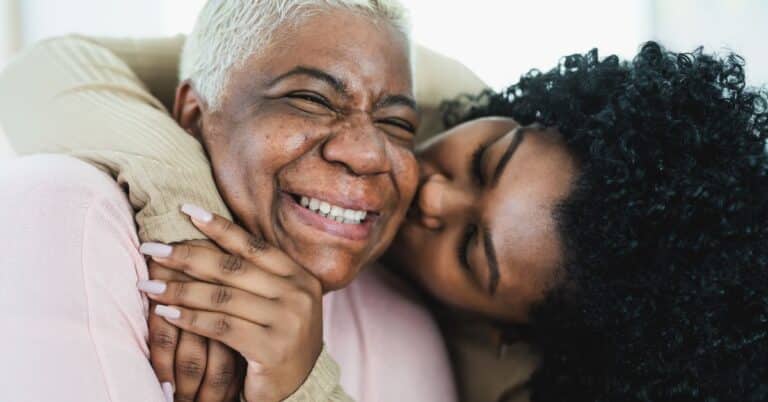Unlike professional caregivers, informal caregivers are not formally trained, yet they often take on a wide range of responsibilities, such as assisting with daily living activities, managing medications, and providing emotional support, all while balancing their personal and professional lives.
The Essential Role of Informal Caregivers in Healthcare and Daily Living
Informal caregivers, those who provide unpaid care to family members, friends, or neighbors, have become increasingly recognized for their critical role in the healthcare system. Especially in the wake of the Covid-19 pandemic, the importance of informal caregivers has grown significantly. As healthcare technology advances and the industry expands, the demand for informal caregivers to deliver more sophisticated at-home care continues to rise. This article explores the evolving role of informal caregivers, the impact of Covid-19, and the benefits of becoming an active participant in healthcare.
The Growing Popularity of Informal Caregivers
Informal caregivers have always been the backbone of at-home care, but their role has gained prominence in recent years. The healthcare industry has come to rely more heavily on these caregivers as the population ages and the prevalence of chronic diseases increases. Technological advancements in healthcare have also placed higher demands on informal caregivers to manage complex medical tasks that were once only handled by professionals.
The Covid-19 pandemic highlighted the indispensable role of informal caregivers. As hospitals became overwhelmed and in-person medical visits were limited, many individuals relied heavily on their caregivers for support and care. This period revealed both the strengths and weaknesses of the informal caregiving system, emphasizing the need for better training and resources.
The Impact of Covid-19 on Informal Caregiving
During the pandemic, informal caregivers were thrust into roles that required them to perform more sophisticated care tasks. Many caregivers found themselves managing home care for Covid-19 patients, administering medications, and monitoring symptoms. However, the lack of formal training and support for these caregivers became glaringly apparent.
Society realized that this was a huge missed opportunity for training informal caregivers properly. Proper training could have empowered caregivers to handle crises more effectively, potentially saving lives and reducing the burden on the healthcare system. The pandemic underscored the necessity for the average American citizen to shift from being a passive recipient of care to an active participant, or health advocate.
The Benefits of Becoming a Health Advocate
Transitioning from a passive recipient to an active participant in healthcare offers numerous benefits:
- Improved Health Outcomes: Active involvement in care leads to better understanding and management of health conditions, resulting in improved health outcomes.
- Empowerment: Knowledge and skills empower caregivers and patients, giving them confidence in their ability to manage health challenges.
- Enhanced Communication: Being informed enhances communication with healthcare providers, leading to more effective and personalized care plans.
- Healthcare Costs Savings: Properly managed care can prevent unnecessary hospitalizations and treatments, resulting in significant cost savings.
- Emotional Support: Active participation fosters a sense of control and reduces anxiety, improving overall emotional well-being.
Patient Better: Bridging the Gap
The Patient Better program was developed to address the disparities highlighted by the Covid-19 pandemic. This program aims to equip informal caregivers with the knowledge and tools they need to become effective health advocates. By providing comprehensive education on health management, communication skills, and caregiving techniques, Patient Better empowers caregivers to take an active role in their loved ones’ health.
The program includes modules on understanding medical terminology, navigating healthcare systems, managing medications, and utilizing health records. By completing the Patient Better program, caregivers are better prepared to meet the increasing demands of sophisticated care, ensuring that they can provide high-quality support and improve health outcomes for their loved ones.
Key Takeaways
Informal caregivers are essential to the healthcare system, especially as the demand for more sophisticated care continues to rise. The Covid-19 pandemic highlighted the critical need for better training and resources for these caregivers. By transitioning from passive recipients to active participants in healthcare, caregivers can significantly improve health outcomes, enhance communication with healthcare providers, and reduce overall healthcare costs.
The Patient Better program was developed to address these needs, providing caregivers with the education and tools necessary to become effective health advocates. By empowering informal caregivers, we can ensure a more resilient and responsive healthcare system, ultimately leading to better care for everyone.
Do you want to discuss your score?
Disclaimer: This education was brought to you today by The Patient Better Project Inc., a 501(c)(3) organization dedicated to reshaping the way patients and caregivers navigate care. We are committed to empowering individuals with the knowledge and tools necessary to take control of their health journeys, ensuring that everyone can access the care they need with confidence and clarity.
The information provided here is for educational and entertainment purposes only. It is not intended as, nor should it be considered a substitute for professional medical advice, diagnosis, or treatment. Always seek the advice of your physician or other qualified health provider with any questions you may have regarding a medical condition. If you think you may have a medical emergency, immediately call 911 or your local emergency number.
- From Overwhelmed to Empowered: The Impact of Patient Assistance Programs on Family CareIn this article, we dive into the transformative power of patient assistance tools, showing how they can turn your healthcare overwhelm into confidence. Discover how these resources empower patients to navigate the healthcare system more effectively, leading to more informed decisions and a greater sense of control over their health journey.
- Glossary: CaregiverA Caregiver is a person who provides direct care and assistance to individuals unable to fully care for themselves due to illness, disability, or age.
- Glossary: Primary CaregiverA Primary Caregiver is an informal caregiver responsible for providing care to a friend or loved one who can no longer care for themselves.
